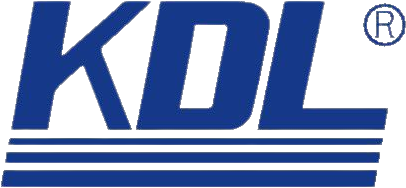
Nerve block needles play a crucial role in pain management, helping people deal with chronic pain or preparing for surgery. These specialized needles deliver medication to specific nerves, temporarily blocking pain signals. Whether you are exploring this technique for your own relief or as a healthcare professional, understanding how nerve block needles work is important.
Introduction to Nerve Block Needles
A nerve block needle delivers medication near a nerve or a group of nerves to numb the area and reduce pain. Nerve blocks provide temporary pain relief, which can last for hours or even days, depending on the type of medication used. Common uses include surgeries, chronic pain treatment, and labor pain management.
KDL, a leading medical device manufacturer and supplier, produces high-quality nerve block needles. Their products are designed for precision, safety, and reliability, making them a trusted choice for healthcare providers worldwide.
Types of Nerve Block Needles
Different procedures require different types of nerve block needles. The most common types include:
- Short Bevel Needles: These blunt-tip needles work best for peripheral nerve blocks, targeting specific nerves outside the brain and spinal cord.
- Long Bevel Needles: Doctors use these sharper needles for deeper blocks, such as epidural nerve blocks near the spine.
- Insulated Needles: These feature a special coating that helps guide the needle to the exact nerve using electrical stimulation.
KDL manufactures all these types to meet the high standards of healthcare professionals. Their needles ensure accurate and safe delivery during nerve block procedures.
How Nerve Block Needles Work
During a nerve block injection, the doctor uses the needle to inject anesthetic or medication near a nerve. This action temporarily halts pain signals from reaching the brain, providing significant relief. In some cases, it also reduces inflammation or improves movement.
To guide the needle precisely, doctors often rely on ultrasound or imaging technology. This method increases accuracy and minimizes risks. KDL’s nerve block needles feature designs that support this precision, ensuring a safe and comfortable procedure for patients.
Mechanism of Action
Nerve block needles work by stopping pain signals from traveling to the brain. Under normal circumstances, nerves send signals to alert the brain to pain. When a doctor administers a nerve block, the medication interrupts this communication.
The anesthetic used, such as lidocaine or bupivacaine, numbs the nerve. In some cases, a steroid helps reduce inflammation around the nerve, providing additional relief.
Procedure Overview
The nerve block procedure is straightforward and takes about 15 to 30 minutes. Here’s what to expect:
- Preparation: The doctor cleans and numbs the area with a local anesthetic.
- Imaging: Ultrasound or fluoroscopy (a type of X-ray) guides the needle to the target nerve.
- Injection: The doctor injects the medication slowly once the needle is in place.
- Monitoring: You’ll be observed briefly to ensure the block works effectively and safely.
KDL’s nerve block needles are designed to make the procedure smooth and efficient, reducing discomfort for the patient while maximizing relief.
Benefits of Nerve Blocks
Nerve blocks offer many advantages. One major benefit is targeted pain relief. Since the medication goes directly to the affected nerve, it does not affect the entire body like general anesthesia. Other benefits include:
- Reduced Opioid Use: Nerve blocks provide enough pain relief to reduce the need for strong painkillers.
- Faster Recovery: Many patients experience quicker recovery times after surgery or injury.
- Fewer Side Effects: Since nerve blocks are localized, there are fewer side effects compared to systemic pain relief methods.
For those managing chronic pain, nerve blocks can be life-changing. KDL’s nerve block needles are designed to ensure consistent, reliable results, offering both doctors and patients the best outcomes.
Risks and Considerations
While nerve blocks are generally safe, there are some risks to consider. These include:
- Infection: As with any procedure that breaks the skin, infection is a risk, though rare.
- Bleeding: Patients with bleeding disorders or those on blood thinners may face increased risks.
- Nerve Damage: In rare cases, temporary nerve damage can occur during the procedure.
KDL manufactures nerve block needles with the highest safety standards. This commitment helps minimize these risks, ensuring effective pain management with fewer complications.
Conclusion
Nerve block needle provide effective pain relief for surgeries, chronic pain, and other medical conditions. If you’re considering a nerve block or want to explore pain management options, consult with your healthcare provider.
KDL, as a leading medical device manufacturer and supplier, provides nerve block needle designed for precision and safety. To learn more about KDL’s products and how they can support your pain management needs, contact us today.

